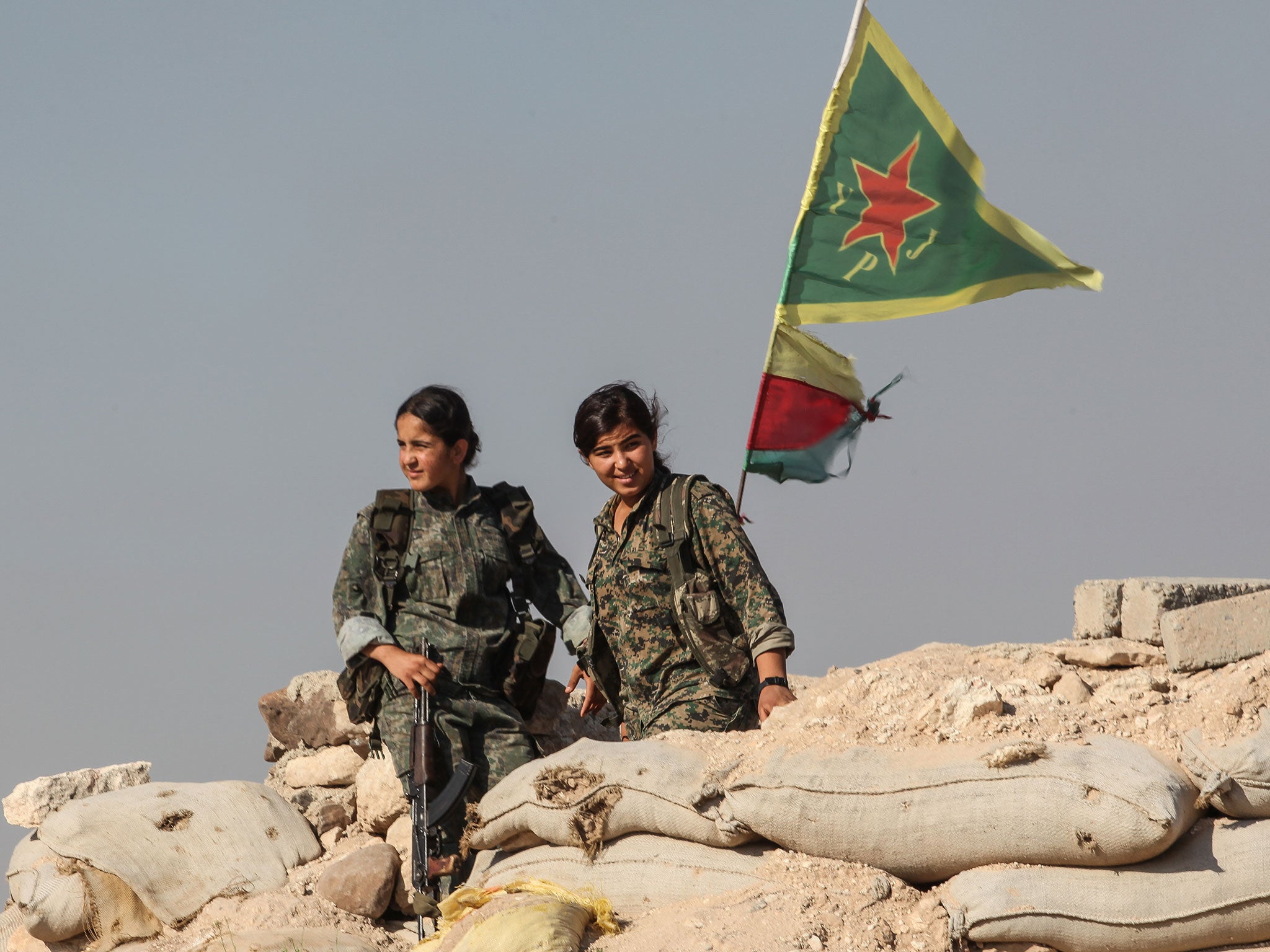'Isis are afraid of girls': Kurdish female fighters believe they have an unexpected advantage fighting in Syria
An all-women faction of the YPG is fighting Isis to re-take territory in north-eastern Syria

Your support helps us to tell the story
From reproductive rights to climate change to Big Tech, The Independent is on the ground when the story is developing. Whether it's investigating the financials of Elon Musk's pro-Trump PAC or producing our latest documentary, 'The A Word', which shines a light on the American women fighting for reproductive rights, we know how important it is to parse out the facts from the messaging.
At such a critical moment in US history, we need reporters on the ground. Your donation allows us to keep sending journalists to speak to both sides of the story.
The Independent is trusted by Americans across the entire political spectrum. And unlike many other quality news outlets, we choose not to lock Americans out of our reporting and analysis with paywalls. We believe quality journalism should be available to everyone, paid for by those who can afford it.
Your support makes all the difference.“Isis is afraid of girls,” according to the female Kurdish soldiers driving the terrorist group back in northern Syria.
The Women’s Protection Units, a faction of the YPG, were formed three years ago and have been hailed as a vital force re-taking Kobani with its estimated 10,000 volunteer troops.
One of its commanders, 21-year-old Telhelden, told CNN the still rare spectacle of female fighters can be an advantage against Isis.
“They think they're fighting in the name of Islam,” she said. “They believe if someone from Daesh [Isis] is killed by a girl, a Kurdish girl, they won't go to heaven.
“They're afraid of girls.”
Telhelden, whose war name means “revenge” in Kurdish, was speaking from the frontline in north-eastern Al-Hasakah province, where she and her soldiers had recently driven extremists out of Al-Houl.
Efelin, a 20-year-old fighter vowed that if Isis tried to come back, they “won’t leave a single one of them alive”.
The women’s military success is a far cry from the role that would be ascribed to them under Isis rule, where Muslim girls can be “legitimately” married to militants from the age of nine and those from religious minorities are raped and enslaved.
A 10,000-word manifesto released in Arabic by one of the group’s numerous propaganda wings earlier this year the “sedentary” role of women as homemakers, wives and mothers, heavily criticising Western women and human rights concepts of gender equality.
British women who have gone to join the so-called Islamic State in Syria have posted photos online showing them in specialist all-female Sharia police brigades or posing with guns, but the reality of daily life seems far less active.
In the recruitment manifesto, women are encouraged to the “sedentary” lifestyle led by responsibilities in the home, which is their “divinely appointed right”.
Education, mainly in religious teachings and domestic work, stops at 15 and it advises that there is no need for women to ”flit here and there to get degrees and so on just so she can try to prove that her intelligence is greater than a man’s.“
In some cases, it says women can leave the family home to work as doctors or teachers, or for jihad “by appointment” but women must be accompanied at all times by male guardians outside the home, covered with layers of veils and gloves to adhere to Isis’ rigid dress code.
It is a fate that the Women’s Protection Units are fighting to avoid, although they know the group would most probably massacre them as infidels.
Patrick Cockburn, the Independent’s Middle East correspondent, met Kurdish fighters in Ras al-Ayn, Syria, earlier this year.
Nujaan, 27, told him Isis’s “target is women”.
She said: “Look at Shingal [in Iraq] where they raped the women and massacred the men. It is a matter of honour to defend ourselves first, and then our families and lands.”
Join our commenting forum
Join thought-provoking conversations, follow other Independent readers and see their replies
Comments